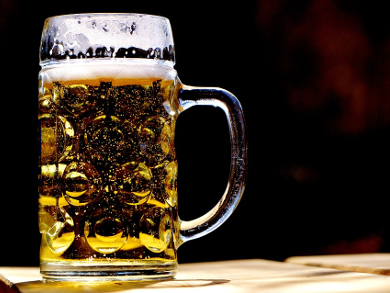Steven Kliewer and David J. Mangelsdorf, University of Texas Southwestern Medical Center, Dallas, USA, and colleagues have explored this question: The consumption of alcohol in mice stimulates the production of a specific hormone called FGF21 in the liver. To clarify whether this hormone is related to the onset of thirst, the team examined two groups of mice: “normal” and genetically engineered mice that could not produce FGF21.
Under normal diet, all animals drank about the same amount of water. When the mice got food that had a similar effect on the nutrient balance in the body as alcohol, the mice from the control group drank more water. The fluid intake in the genetically modified mice did not change. The release of FGF21 stimulates the thirst center in the hypothalamus of the animal’s brain, thus preventing dehydration caused by the diuretic effect of alcohol. At the same time, the desire to continue drinking alcohol is suppressed.
The concentration of liver hormone in human subjects also increased after they had drunk a mixed drink of alcohol and juice. The FGF21 level reached its highest value after two hours, before slowly dropping off again. The consumption of pure juice, on the other hand, caused no release of the messenger substance.
FGF21 may one day be used as a drug to prevent over-consumption of alcohol and its consequences.
- The Hormone FGF21 Stimulates Water Drinking in Response to Ketogenic Diet and Alcohol,
Parkyong Song, Christoph Zechner, Genaro Hernandez, José Cánovas, Yang Xie, Varun Sondhi, Martin Wagner, Vanessa Stadlbauer, Angela Horvath, Bettina Leber, Ming Chang Hu, Orson W. Moe, David J. Mangelsdorf, Steven A. Kliewer,
Cell Metabolism 2018.
https://doi.org/10.1016/j.cmet.2018.04.001




